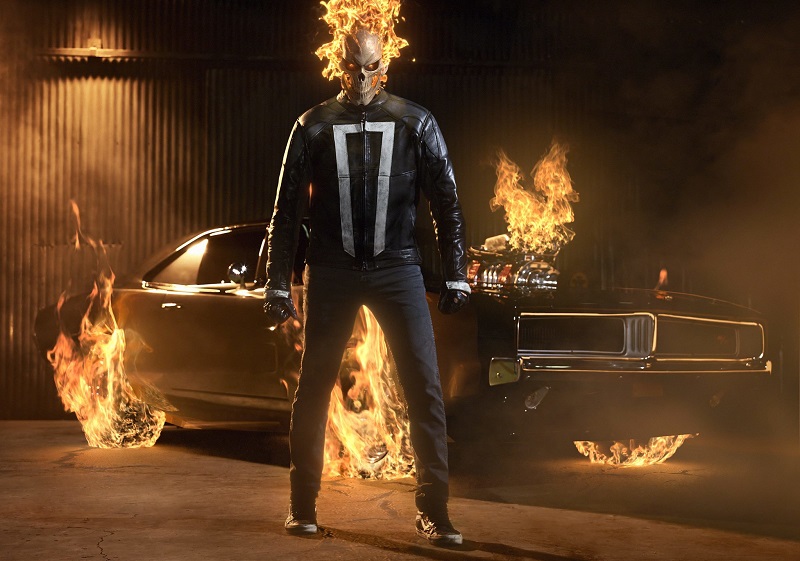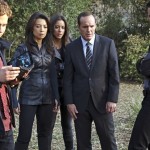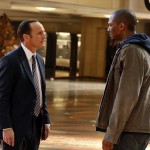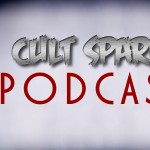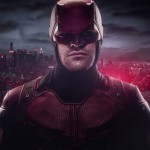In its fourth season, Agents of S.H.I.E.L.D. has finally come into its own. That is not to say that the Marvel television series has not done things right in the past. Both in terms of characters and story arcs, the inaugural MCU show has had some standout moments over the past four years. It has also have just as many, if not more, valleys of piss-poor storytelling as it has had highs.
There are numerous reasons for this. A lot of it has to do with the show's penchant for wheel-spinning. Even more of it has to do with its arcs being tied down by what was going on in the films. After all, you can't have big sweeping narratives going on without them affecting the films, and the show has always been at the mercy of cataclysmic events that occur within its theatrical brethren. Lord knows that the first season was mostly a waste until the "Hydra controls S.H.I.E.L.D." revelation in Captain America: The Winter Soldier came along.
The program's relationship with the films has often been a strained on, regularly resulting in forced cameos from the likes of Nick Fury, Maria Hill and Sif. Such instances have always worked best when bringing in side characters who fit its concepts more organically, such as William Sadler reprising President Ellis. More often than not, it runs best when simply doing its own thing.
This latest season illustrates this better than ever before. Inhumans have been a thing on the show since season two, but it always felt like the showrunners never quite knew what to do with them. They're good, they're bad, they need to be regulated, they need to be saved. The series could never make up its mind. Luckily, the creation of the Sokovia Accords in Captain America: Civil War acted like a Rosetta stone. Instead of taking a stance on the existence of Inhumans in the MCU, the show has saved itself by remaining neutral.
Part of the newly-reformed S.H.I.E.L.D.'s duties is now the regulation and protection of Inhumans and other enhanced individuals. Sure, that was always part of its duties, but for some reason the showrunners never seemed to have a real bead on that until now. What makes this finally work four seasons in is that the series is now tackling all aspects of such a task. We are getting differing opinions within the agency of how to deal with threats such as rogue powered individuals and anti-Inhuman terrorists. Workplace conflict has always been present on the show, but now that it isn't the core source of conflict (outside of seasonal villains), it becomes less rote.
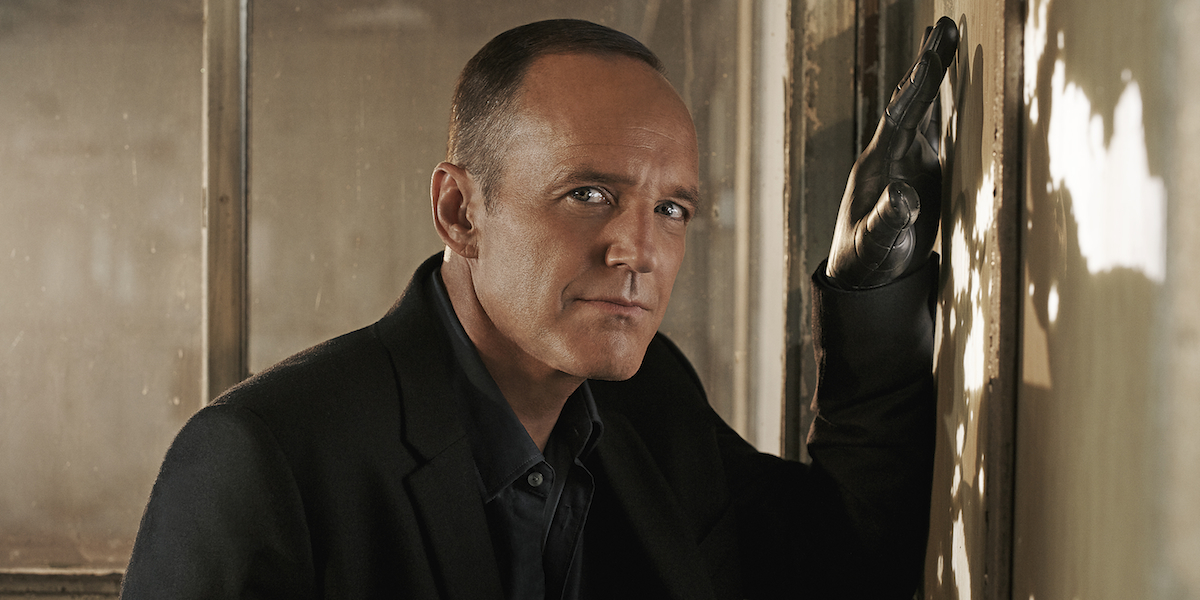 We are getting the political ramifications of the agency's public return, humanity's reaction to Inhumans and the Accords, and the strain it puts on the agency's day to day operations. Considering the fact that S.H.I.E.L.D. operated virtually unopposed in the shadows for the past few seasons, this is also a welcome change. Add in the fact that Coulson is no longer the head honcho and we now have a wide variety of conflicts to spice up the narrative with.
We are getting the political ramifications of the agency's public return, humanity's reaction to Inhumans and the Accords, and the strain it puts on the agency's day to day operations. Considering the fact that S.H.I.E.L.D. operated virtually unopposed in the shadows for the past few seasons, this is also a welcome change. Add in the fact that Coulson is no longer the head honcho and we now have a wide variety of conflicts to spice up the narrative with.
None of this is particularly new. In broad terms, all of this is ground that the series has covered before, but it's rarely done so simultaneously. This is a series that, from day one, has had a habit of hyper-focusing on one type of conflict at a time until it has run it into the ground. By weaving all of these elements together at once, the show is finally realizing its true potential. In that regard, the past three seasons of trial and error have served it well.
On top of finally learning from their mistakes and crafting a more complex and concise story, this year has also finally added in layers of mysticism and the supernatural into the proceeding. We knew this going into the season based on the announcement that both Ghost Rider and the evil tome the Darkhold would be present. At the time, I feared we were in store for a repeat of the first season. The absolute worst thing this season could have done would have been to wheelspin its plot for weeks on end and then try to shoehorn magical/supernatural elements into the series' DNA upon Doctor Strange's arrival in theaters this month.
Luckily, they have wisely avoided this. While it's entirely possible that the events of Doctor Strange (check out Bob's review!) might come into play in some fashion, the show's current main plot stands almost entirely on its own. Better still, what little it is pulling in from outside sources is coming not from the films, but from the final season of Agent Carter that aired earlier this year. Once again, they have learned from their mistakes. Information about Isodyne, Roxxon Oil and the Darkforce from Agent Carter's second season has been weaved into the plot organically. The show isn't stopping and asking the viewer to pause the episode and go watch another Marvel program before finishing. For that, I am grateful.
Another concern of mine going into the season was the usage and depiction of Ghost Rider. I don't find the Nic Cage Ghost Rider duology that Sony produced to be the dumpster fire that most do, but they aren't good films and they certainly waste the character's potential. While that potential still remains largely untapped here, this depiction is more complex and there is plenty of room for the show to continue to move in that direction. Ghost Rider is central to the show's direction this year and a new main character who has been organically (there's that word again) integrated into the main series arc.
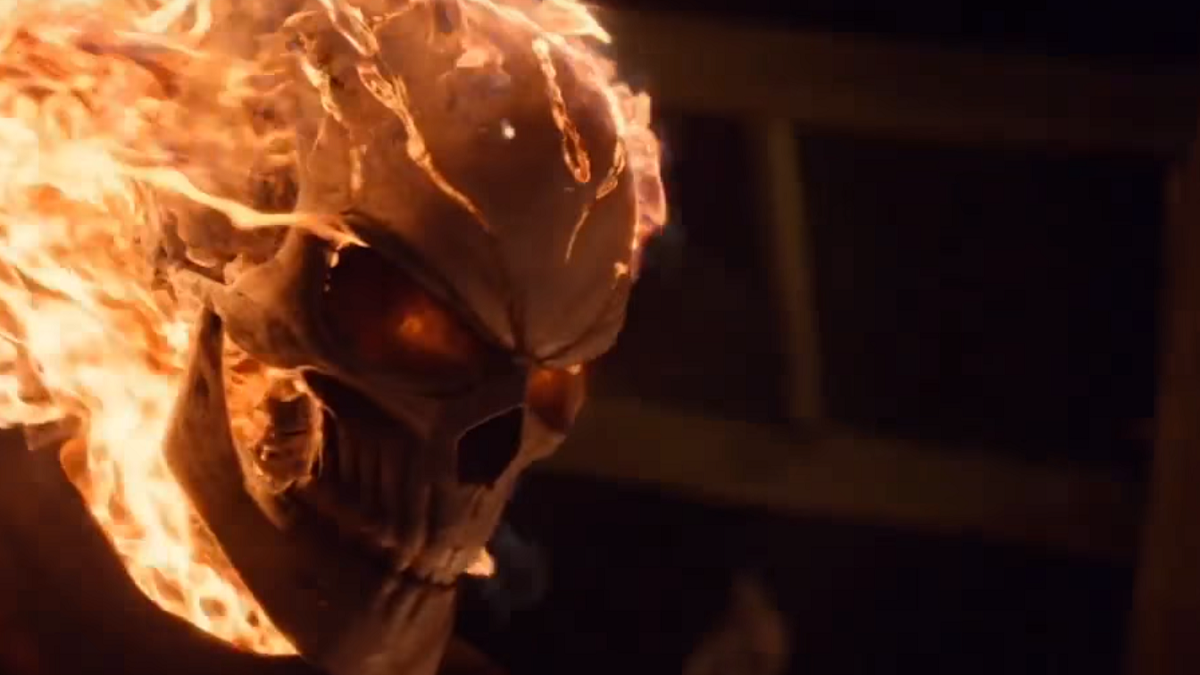 Robbie Reyes in the comics, while Ghost Rider, was not a Spirit of Vengeance. Instead, he was simply possessed by a ghost and gifted Ghost Rider-esque abilities. That's not the case on Agents of S.H.I.E.L.D. Here is he absolutely bonded with the Spirit of Vengeance, but fans of more popular incarnations like Johnny Blaze and Dan Ketch need not worry too much. His origin, as detailed, has left room for other version of the character to appear in the MCU later on, be it on this show or elsewhere.
Robbie Reyes in the comics, while Ghost Rider, was not a Spirit of Vengeance. Instead, he was simply possessed by a ghost and gifted Ghost Rider-esque abilities. That's not the case on Agents of S.H.I.E.L.D. Here is he absolutely bonded with the Spirit of Vengeance, but fans of more popular incarnations like Johnny Blaze and Dan Ketch need not worry too much. His origin, as detailed, has left room for other version of the character to appear in the MCU later on, be it on this show or elsewhere.
By diversifying the types of conflict and genre elements, Agents of S.H.I.E.L.D. has finally become the show it should have been from the get-go. Better late than never, I guess, although it's a shame it took so long to happen. This series should have been a full showcase of the Marvel Cinematic Universe's endless potential from the start. Sure, it has budgetary constraints, but within those, anyone should have been able to tune into an episode on any given week and understood that this is a world in which science fiction, fantasy and horror regularly collide and are combated with technology, magic and superpowers.
Previously this program never gave its viewers more than one or two of those things at a time, all the while wrapping juvenile conflicts around them. Now that it is giving us all of the above at once, with multiple layers of far mature conflicts sprinkled throughout, and has become more of an ensemble than ever before, it is finally firing on all cylinders. At the end of last season, I neither wanted nor expected this show to last beyond this fourth season, which will see it hit its needed episode count for syndication. Now, assuming the uptick in quality continues, I hope it doesn't go away anytime soon.
Agents of S.H.I.E.L.D. isn't one of the best shows on TV, but it has finally become a dependably entertaining one. Furthermore, for the first time in four years, I find myself a bit bummed that it's going on hiatus for almost a month. This week's episode actually left me wanting more and wanting it now.

